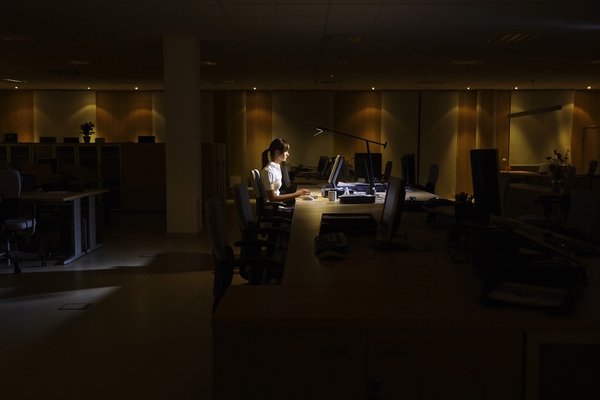Improving project team members' mental health

On Stress Awareness Day, Galen Low at The Digital Project Manager describes how project managers can identify team members struggling with mental health issues and how they can support their mental well-being in the workplace.
A project manager has many responsibilities, perhaps most importantly organising and overseeing the planning, monitoring and evaluation of a project, but they are also responsible for recognising the mental health of their team members.
During long and complicated projects, it is common to experience increased stress, but understanding how to help team members cope with it and prevent it from developing further into a source of additional mental health issues is essential.
With an annual average of 40 percent of UK sickness absences and an estimated £42 billion lost by businesses due to poor mental health among employees, it is important to recognise the impact of mental illness on employees.
In line with Stress Awareness Day, here’s how project managers can identify team members struggling with mental health issues and how they can support their mental well-being in the workplace.
Identify issues
As a manager, having the ability to identify when a team member is struggling with their mental health is essential to address and support the individual with steps to take to feel happier at work.
Look for key signs of struggles over time, such as increased irritability, deterioration in the quality of their work, a rapid change in moods, withdrawal and lack of motivation.
If you’re unsure, lean on colleagues for advice on best practice and ways to approach situations without causing any more distress.
Many training courses are available to better your understanding of the causes, signs and solutions of poor mental health, which can benefit managers in their efforts to support and lead team members more effectively.
Overcome communication barriers
In a recent study, over half of respondents stated that added stress was the biggest consequence of poor communication.
Barriers to effective communication can include language, cultural diversity and physical separation.
Remove barriers by providing diversity and communication training to employees to help team members better understand differences between colleagues and adjust communication styles accordingly.
And with over 24 per cent of UK workers now hybrid working, address physical separation by encouraging one-to-one check-in meetings to discuss personal and professional needs.
Additionally, using workplace messaging tools within your team can be helpful to streamline communication and make remote/hybrid workers feel connected when away from the office.
Meanwhile, implement effective communication methods throughout the hierarchy to prevent status from obstructing the free flow of information that could leave employees further down feeling misheard or under-represented.
Monitor workloads
Project managers are experts at effectively planning projects to ensure each stage is successful from concept to completion. However, less than one in five people have a proper time management system - which can lead to high-stress levels and even burnout.
Studies show that tracking workloads using online time-management tools benefits both managers and employees by causing a decrease in stress and providing a better basis for delegation.
Teach team members how to use tools to maximise efficiency, help them prioritise tasks and track time spent on them, to help them compartmentalise their workload.
This, in turn, will increase productivity and reduce stress as these methods prevent tasks from spilling over into evenings or weekends by giving employees a birds-eye view of their daily and weekly task loads.
Encourage a work-life balance
In many industries, overtime can sometimes be inevitable and occasionally expected. However, ensuring that team members have a proper break from work is crucial for their emotional wellbeing.
One study found that 60 per cent of employees experience work-life conflict, with the biggest source of conflict being the number of hours spent at work.
Encourage team members to take regular breaks, work smarter, not harder within set workdays and promote solutions to lighten the strain, such as flexibility around deadlines, work hours and approaches.
Managers can also collaborate with team members to establish ways of working that suit their individual needs, for example, providing leeway around shift times so people can work when they’re most productive or around other responsibilities instead of the standard 9 to 5.
Simple benefits such as this also help to build trust among employees who feel supported and valued.
Plus, employees should feel they can lean on their colleagues for support when their workload becomes unmanageable. This can be done through hosting regular collaborative team meetings to give the whole team visibility over capacities and looming project deadlines.
Furthermore, managers should set an example by leaving work on time after completing their contracted hours, using their holiday time and avoiding answering work-related communications outside work hours.
Welcome feedback
Establishing a feedback culture in your work environment and hearing about mental health issues directly from employees is one of the most effective ways to understand struggles and help team members cope.
Not only can this strengthen the relationship between a manager and their team, but it promotes a more open and understanding environment that can help to destigmatise emotional struggles.
Organise regular feedback sessions such as monthly one-to-one meetings between managers and employees where work issues can be raised - alongside personal concerns. This helps to naturalise conversations around mental health, which is seen to be valued just as highly as work priorities.
This could be as simple as ending meetings with questions such as ’is there anything we can do to support your well-being at work?’ As employees begin to see their concerns addressed regularly, they will be more likely to raise concerns earlier – when interventions are most effective.
Galen Low is General Manager at The Digital Project Manager
Main image courtesy of iStockPhoto.com

Business Reporter Team
Most Viewed
Winston House, 3rd Floor, Units 306-309, 2-4 Dollis Park, London, N3 1HF
23-29 Hendon Lane, London, N3 1RT
020 8349 4363
© 2025, Lyonsdown Limited. Business Reporter® is a registered trademark of Lyonsdown Ltd. VAT registration number: 830519543





